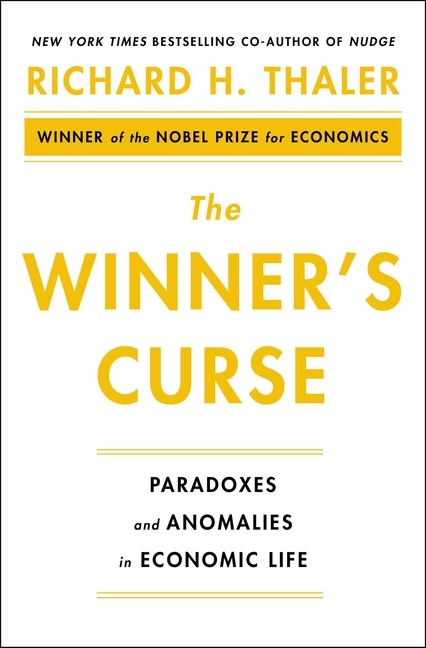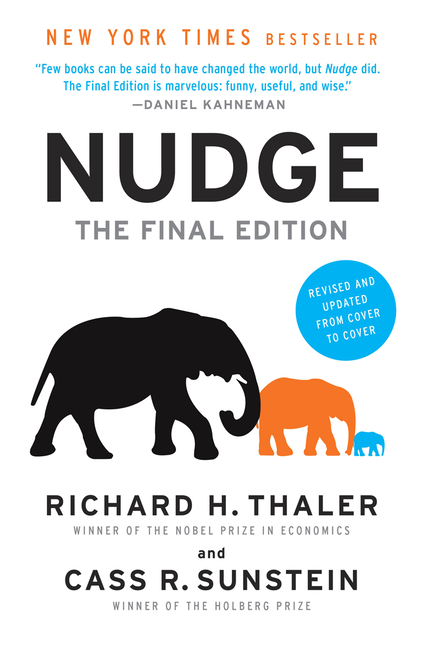
The Winner's Curse: Paradoxes and Anomalies of Economic Life
Nobel Prize-winning economist Richard H. Thaler challenges traditional economic paradigms and reveals the many paradoxes about human behavior and our transaction-based culture in this "interesting and entertaining" ( The Wall Street Journal ) work. While the rationale behind economics always seems to be at the forefront of political and institutional life, many economic theories in relation to consumer behavior have not been studied in detail.
| Quantity | Price | Discount |
|---|---|---|
| List Price | $17.00 |
Non-returnable discount pricing
$17.00
Book Information
| Publisher: | Free Press |
|---|---|
| Publish Date: | 11/01/2021 |
| Pages: | 240 |
| ISBN-13: | 9781982141554 |
| ISBN-10: | 1982141557 |
| Language: | English |
Full Description
Nobel Prize-winning economist Richard H. Thaler challenges traditional economic paradigms and reveals the many paradoxes about human behavior and our transaction-based culture in this "interesting and entertaining" (The Wall Street Journal) work. While the rationale behind economics always seems to be at the forefront of political and institutional life, many economic theories in relation to consumer behavior have not been studied in detail. Here, in The Winner's Curse, Richard Thaler challenges today's accepted economic wisdom by revealing many of the anomalies that abound even in simple economic transactions. He presents literate, challenging, and often funny examples of such variances as why the winners at auctions are often the real losers--they pay too much and suffer the "winner's curse"--why gamblers bet on long shots at the end of a losing day, why shoppers will save on one appliance only to pass up the identical savings on another, and why sports fans who wouldn't pay more than $200 for a Super Bowl ticket wouldn't sell one they own for less than $400. He also demonstrates that markets do not always operate with the traplike efficiency we impute to them. Thaler argues that recognizing these sometimes counterintuitive facts of economic behavior will compel economists to adopt a more balanced view of human nature, one reflected in Adam Smith's belief that, despite our selfishness, there is something in our nature that prompts us to enjoy, even promote, the happiness of others.


